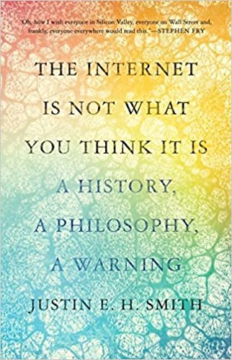Richard Marshall in 3:16:

3:16: What made you become a philosopher?
JS: You’ll get very different answers from me depending on how far back in time we start. I can remember being very little, six years old or so, and feeling deeply puzzled by the matter of why there is something rather than nothing. It wasn’t a pleasant feeling; in fact I would describe it as traumatic — it seemed existence itself must be a mistake and an impossibility. Made me cry like a baby, which I practically was. That puzzlement still flares up sometimes, like a childhood illness lying dormant, but when it does it’s less intense, just like everything else at this point.
Less remotely, I was a high-school dropout and so had to do my first college courses at a two-year institution where what was being taught was not exactly at the cutting-edge of research, and was often a fairly extreme misrepresentation of the various disciplines. When I transferred into the University of California, Davis, I only had two more years left to get my degree, and I had a double major in both philosophy and Russian studies with a focus on Slavic linguistics. This means that by the time I graduated, I had in fact taken very few philosophy courses, and was very lucky to have taken most of them with John Malcolm in ancient philosophy, Paul Teller in philosophy of science and logic, and Richard Wollheim in aesthetics and the philosophy of psychoanalysis. I applied to various programs in both philosophy and Slavic linguistics and I pretty much only got into Columbia in the former, and UCLA in the latter. At that point in my life, all I really wanted to do was to learn more, about as many things as possible, and I still knew sufficiently little about philosophy as an academic discipline to be able to maintain the false belief that it would be a good milieu in which to pursue that goal.
More here.
